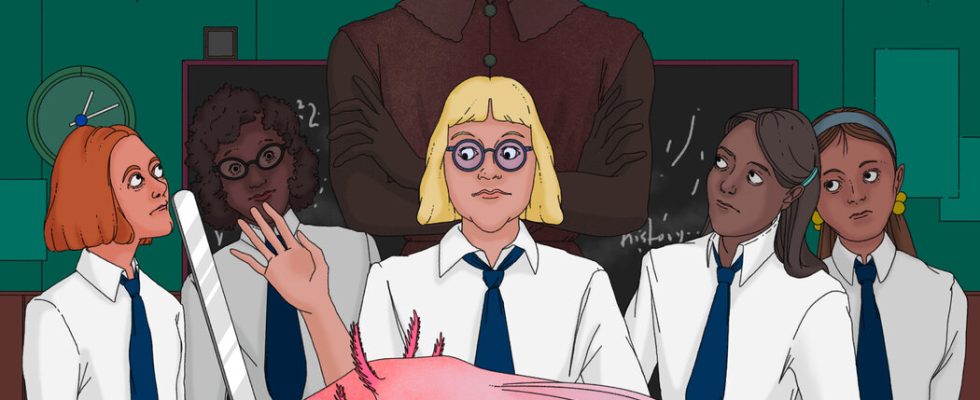PET, by Catherine Chidgey
Contemporary books about adolescent girls tend to fall into two categories. First, the reassuring kind, by Norma Klein or Judy Blume, in which the bad things that happen are the usual ones — puberty, parental divorce, bullying — and everything will be all right in the end. Then there’s the other kind, by writers like Shirley Jackson or Elena Ferrante. In these, the primary revelation of adolescence is the girl’s discovery of her own power — a power difficult to control, which can hurt or even kill.
An unnerving intellectual thriller about the intimate, easily exploited bonds between girls and women, “Pet,” by the New Zealand writer Catherine Chidgey, is the second kind. It splits its time between Wellington in 1984, when 12-year-old Justine is dealing with the aftermath of her mother’s death from cancer, and Auckland in 2014, as the poisonous spores of her childhood threaten to erupt into her adult life. Deeply grounded in its setting — a Catholic primary school and the surrounding milieu — “Pet” nonetheless asks universal questions. Can anyone really understand what they might be capable of? Is it possible both to know something and to not know it? Can we be certain about anything, even when we see it with our own eyes?
Mrs. Price is the teacher whose pet all the girls want to be. Glamorous, sexy and a little mysterious, she’s both magical and spooky — part fairy godmother, part witch. She drinks “diet milkshake powder that made you feel full” and calls her favorite students “my sweetheart” and “my darling.” Rumor has it that her husband and daughter died in a car accident, “though nobody quite knew when or how, or whether she had been in the car at the time, and nobody liked to ask.” She keeps a locked room in her house, like Bluebeard.
Not long after Mrs. Price adopts Justine as her new pet, small objects start to go missing from the classroom. The stolen trinkets, including a cheap pen that Justine treasures because it was a gift from her mother, are valuable only to their owners. But “they mattered,” Justine narrates: “They reminded us who we were.” The losses destabilize the class and create distance between Justine and her best friend, Amy, a Chinese girl whose family are already outsiders in this conservative, homogeneous neighborhood.

